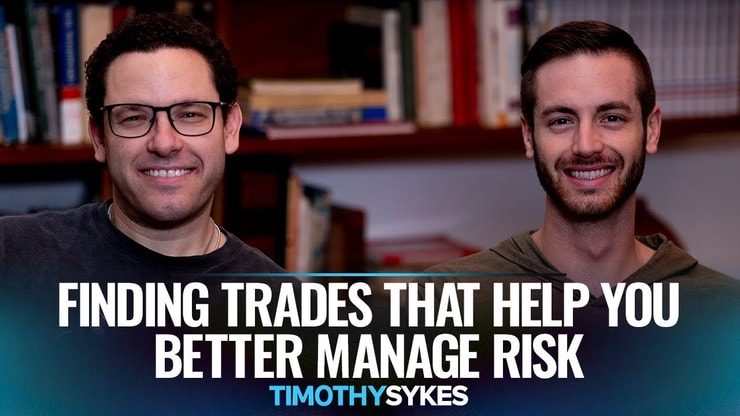David Portnoy, known as “El Presidente,” is the founder of Barstool Sports, a popular sports and pop culture blog turned media empire. While he initially gained recognition through the world of sports and entertainment, Portnoy entered the financial world with his brash and unconventional style of trading.
During the 2020 pandemic, he launched his online trading persona, “Davey Day Trader”, where he began day trading stocks in front of his growing social media following. His quick rise in the financial community was driven by his high-risk, high-reward bets and his outspoken approach, which resonated with both beginner and seasoned traders.
You should read this article because it uncovers how David Portnoy’s bold trading moves could impact your own trading strategy.
I’ll answer the following questions:
- Who is David Portnoy?
- Is David Portnoy legit or a scam?
- What trading strategy is David Portnoy famous for?
- How did David Portnoy get started in trading?
- What are the early trading successes of David Portnoy?
- Which stock picks are on David Portnoy’s watchlist?
- What is David Portnoy’s net worth?
- Does David Portnoy have a TikTok, YouTube, or Instagram account?
Let’s get to the content!
Table of Contents
Who Is David Portnoy?
Dave Portnoy is an internet personality who leveraged his social media influencer status to command attention in the stock markets, often causing spikes in stocks just by mentioning them. His live-streamed trades, filled with spontaneous decisions and often fueled by market buzz, made him a controversial figure in Wall Street.
Unlike traditional investors, Portnoy bypasses deep analysis for gut-based trades, high-risk trades, embracing volatility while encouraging his followers to adopt the mindset that “stocks only go up.”
Successful traders understand and know how to manage risk. Have you mastered this? Watch my video below to learn how.
Is David Portnoy Legit or a Scam?
David Portnoy is certainly not a scam, but whether or not he’s a “legit” trader in the traditional sense is a different question.
As the founder of Barstool Sports and a savvy entrepreneur, Portnoy built a media empire that catapulted him into the public eye.
His foray into day trading has drawn both admiration and criticism, largely because his trading approach diverges from traditional methods. He promotes a high-energy, aggressive style of trading—focused more on momentum and market trends than on technical data or fundamentals.
What Trading Strategy Is David Portnoy Famous For?
David Portnoy is most known for his momentum trading. He jumps into stocks based on their popularity in the news or social media rather than through detailed analysis.
This strategy, driven by market sentiment and his own charisma, allows him to influence stock movements, making him a polarizing figure. His infamous mantra, “stocks only go up,” reflects this aggressive, short-term trading mindset, focusing on high-reward performance potential.
Of course, stocks don’t always go up. Once upon a time I tried to tell Portnoy that…
Don’t be sad I’m better than you at what you do in 2 weeks. I have a huge brain. You can’t compete. Kneel before your new king. https://t.co/t0qVtmULoi
— Dave Portnoy (@stoolpresidente) March 30, 2020
Portnoy’s Strategy: Momentum and Social Media Buzz
Portnoy’s most notable strategy involves momentum trading and making high-risk, high-reward bets on popular stocks, often driven by social media buzz rather than traditional analysis.
Portnoy capitalizes on shares with large news events or sudden surges in interest, often exacerbated by his online presence and tweets. His followers drive even more attention to the stocks he selects, contributing to short-term price increases.
However, as with any momentum strategy, this method carries significant risk—often leading to quick gains but equally fast losses. Traders must remain cautious when following these types of high-risk moves, as they’re unpredictable and not grounded in consistent market analysis.
Using momentum in your trading strategy requires a robust platform that features technical indicators, charting and more.
StocksToTrade is first on my list. It’s a powerful day and swing trading platform that integrates with most major brokers. I helped to design it, which means it has all everything traders like me look for in a platform.
Grab your 14-day StocksToTrade trial today — it’s only $7!
How Did David Portnoy Get Started?
David Portnoy’s initial success came through Barstool Sports, a site he started in Chicago focused on sports, gambling, and pop culture. By 2020, with Barstool’s media success cemented, Portnoy pivoted to finance with his “Davey Day Trader” persona.
During the early days of the pandemic, when traditional sports events were paused, Portnoy entered the stock market, engaging in day trading live on YouTube and other platforms. His in-your-face, brash style resonated with a new generation of traders looking for excitement.
With a heavy reliance on market sentiment, Portnoy’s rise in the stock market world happened quickly, and he amassed a huge audience watching his live trades daily.
Early Trading Successes
Portnoy’s early trading success was less about calculated trades and more about riding the waves of the market’s wild swings. He made big bets on popular stocks and rode their gains to boast large profits, sometimes as much as $1 million.
His high-profile trades, such as those in Tesla Inc. (NASDAQ: TSLA) and airline stocks, garnered both media attention and substantial financial results, catapulting him further into the day trading spotlight.
David Portnoy’s path to trading may seem unique, but historical figures like Nick Leeson show that unconventional approaches to finance are not new.
Portnoy’s rise was fueled by public engagement, whereas Leeson’s trajectory ended in scandal and prison time. These contrasting stories provide valuable insights for traders about the impact of transparency in the financial world.
Read my article to discover the details of Nick Leeson’s career.
Which Stock Picks Are on David Portnoy’s Watchlist?
David Portnoy’s stock picks often include trendy or heavily discussed stocks that are experiencing high volatility. His watchlist is usually filled with shares that are making headlines or catching fire on social media platforms like Twitter and Instagram.
Stocks such as Tesla Inc. (NASDAQ: TSLA), Amazon.com Inc. (NASDAQ: AMZN), and airline stocks were among his frequent trades in 2020 and 2021.
Additionally, Portnoy has shown interest in meme stocks, such as GameStop Corporation (NYSE: GME) and AMC Entertainment Holdings (NYSE: AMC), that have exploded due to online hype.
While David Portnoy often gravitates towards volatile, high-risk stocks like Tesla and GameStop, Cathie Wood’s portfolio focuses on companies leading in innovation sectors like biotechnology, robotics, and AI.
Wood’s calculated stock picks provide an interesting counterpoint to Portnoy’s more opportunistic approach. Traders looking for long-term, growth-oriented stocks might find Wood’s watchlist more suited to their goals.
Check out my article to learn more about Cathie Wood’s investment philosophy.
What Is David Portnoy’s Net Worth?
As of 2024, David Portnoy’s estimated net worth is around $100 million, largely due to the success of his business, Barstool Sports.
His entry into the stock market, while highly publicized, is only a part of his financial portfolio. The acquisition of Barstool Sports by Penn National Gaming added significant wealth to Portnoy’s personal fortune, as he retained a stake in the company post-acquisition.
Portnoy’s net worth is bolstered by multiple revenue streams, including his stake in Penn, investments in stocks, and money from various online content ventures.
Trading isn’t rocket science. It’s a skill you build and work on like any other. Trading has changed my life, and I think this way of life should be open to more people…
I’ve built my Trading Challenge to pass on the things I had to learn for myself. It’s the kind of community that I wish I had when I was starting out.
We don’t accept everyone. If you’re up for the challenge — I want to hear from you.
Apply to the Trading Challenge here.
Trading is a battlefield. The more knowledge you have, the better prepared you’ll be.
Is continuous education part of your trading toolkit? Write, “I’ll keep it simple Tim!” in the comments if you picked up on my trading philosophy!
More Breaking News
- DealFlow Discovery Conference Unveils Corporate Opportunities
- Needham Upgrades Ichor Holdings to Buy Amid Positive Forecasts
- Datadog Soars with Strategic Price Adjustments Amid Optimism
- Insider Stock Sale Raises Questions About Micron’s Market Position
FAQs About David Portnoy
How Old Is David Portnoy?
David Portnoy was born on March 22, 1977, making him 47 years old in 2024.
Does David Portnoy Have a Blog or Website?
Yes, Portnoy runs Barstool Sports, a blog and media company that covers everything from sports to finance to pop culture. His trading antics are often featured in blog posts on the Davey Day Trader section of the site.
Does David Portnoy Have a TikTok, YouTube, or Instagram Account?
David Portnoy is highly active on social media, with accounts on TikTok, YouTube, Instagram, and X/Twitter.
Does David Portnoy Offer a Course?
No, David Portnoy does not currently offer a formal trading course. His trading activity is more about live streaming and providing entertainment rather than structured educational content.





Leave a reply